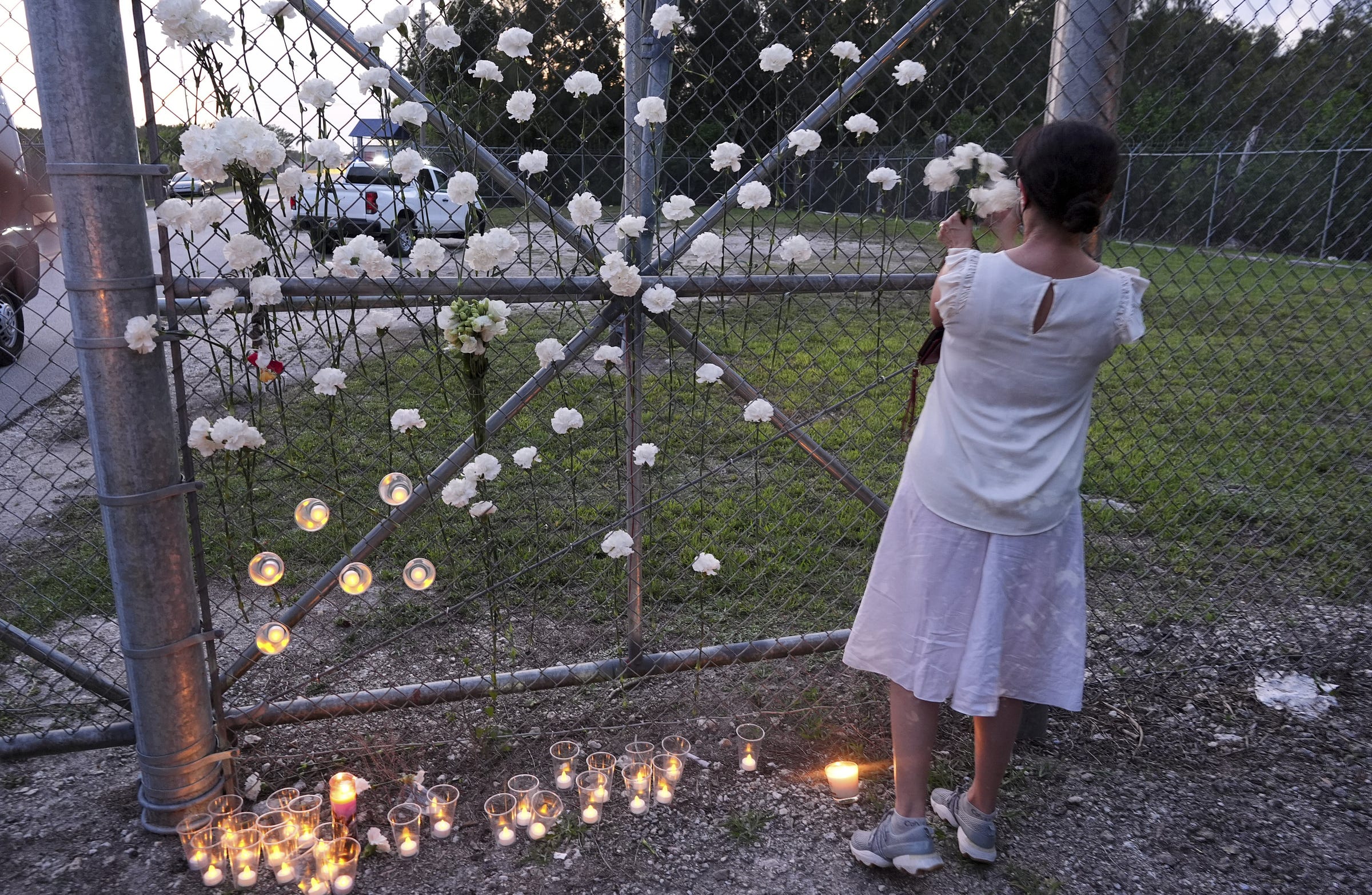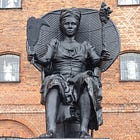Weekly Roundup: May 30
Here’s the weekly roundup from A Public Witness. In addition to a review of a new memoir that is free for anyone to read, paid subscribers to A Public Witness received a photo essay reflecting on power and memorialization.
Support our journalism ministry by upgrading to a paid e-newsletter subscription today!
Top 5 at wordandway.org
Gaza-Born American Baptist Pastor Discriminated Against. Daoud Kuttab wrote about the mistreatment of Rev. Hanna Massad by Israeli authorities and wonders why the Trump administration is not responding to such anti-Christian bias.
Can We Recover a Healthy Democracy? Rodney Kennedy wrote about what is needed for U.S. democracy to have a chance to return to a vibrant life in the future.
Review: 1 Corinthians — A Theological, Pastoral, and Missional Commentary. Robert D. Cornwall reviewed a book about the spiritual implications of Pauline theology by New Testament scholar Michael J. Gorman.
It’s Not a Reprint. Why Sacred Harp Singers Are Revamping an Iconic Pre-Civil War Hymnal. Holly Meyer wrote about the shape-note singing tradition.
An Interfaith Group’s 1950s MLK Comic Book Remains a Prominent Nonviolence Teaching Tool. Adelle M. Banks reported on the international use of a nearly seven-decade-old comic book.
by Jeremy Fuzy, Word&Way Digital Editor
On the heels of asking employees to report instances of “anti-Christian bias,” news broke yesterday (May 29) that Secretary Marco Rubio’s State Department is set to launch an Office of Remigration. But what exactly does “remigration” mean? Well, you have likely never heard the term before unless you make a habit of reading about European neo-Nazis.
According to the Global Project Against Hate and Extremism, “Remigration is rooted in the thoroughly de-bunked White supremacist ‘Great Replacement’ conspiracy theory, which purports a planned ‘replacement’ of White people by politicians and other ‘elites.’ … Remigration is a series of policy proposals … to end the so-called ‘replacement’ by purging the continent of non-White people and eliminating all forms of multiculturalism. The goal is to make countries ‘European again.’”
While it is certainly shocking to see this become part of official U.S. governmental policy, it is not exactly surprising that MAGA politicians have adopted an extremist, anti-immigrant buzzword. After all, the current administration has made a practice of detaining American citizens from other countries, allowing Immigration and Customs Enforcement agents into schools and churches, refusing to resettle refugees, unlawfully deporting immigrants to a mega-prison in El Salvador, and seeking to end the constitutional guarantee of birthright citizenship.
Some of this is certainly classic scapegoat theory — the notion (with origins in Leviticus 16) that groups can be directed to aim their anger at those not responsible for their misfortunes, diverting attention from the true causes. However, all of this unwelcoming of the stranger is best understood through the lens of Christian Nationalism. This is why it is crucial to recognize that their goal is not to make the U.S. a “Christian nation” in any broad sense. It has not been relevant to the Trump administration whether or not immigrants identify as Christians, as many do. Christian Nationalists are specifically part of an authoritarian movement bent on imposing a hierarchy where White, conservative Christians hold all the power. Democracy is just getting in the way.
The ironic part is that often, political comparisons to fascism in Europe mask our own uncomfortability with the fact that Nazis used American Jim Crow segregation policies as inspiration for many of their horrifying plans. But this Office of Remigration appears to be a new, tariff-free import.
Other News of Note
Retired sociology professor John Hawthorne, author of The Fearless Christian University, wrote a review of Baptizing America.
Michael Kruse of Politico wrote about Donald Trump’s embrace of messianic rhetoric.
Jack Healy of the New York Times profiled responses in a small, Trump-supporting Missouri town to ICE arresting a mother many of them know from church or work.
As masked agents arrested people who came to a Manhattan courthouse for immigration hearings, they also arrested a pastor who came to observe the arrests.
A woman who worked for a Lutheran refugee resettlement organization was fired for publicly criticizing the agency’s decision to assist in resettling Afrikaners amid the Trump administration’s false claims of a “genocide” against White people in South Africa.
As the first measles case in 8 years was reported in Nebraska, some health officials are worried about vaccination rates among children because of a rise in claims of religious exemptions.
Members of the Texas House of Representatives passed a bill to require the posting of an edited version of the Ten Commandments in public school classrooms — approving the bill on Sunday, the Christian Sabbath Day. Gov. Greg Abbott is expected to sign it, though it will quickly face a legal challenge from multiple groups.
“No one should have to walk past giant religious monuments just to access a public safety building. That sends the wrong message about who our city serves — and who it doesn’t.” —Gilly Rosenthol, a plaintiff in a new suit challenging plans by the mayor of Quincey, Massachusetts, to install two large statues of Catholic saints at the entrance of the city’s new public safety building.
After the state of Washington passed a new law making clergy mandatory reporters of child sex abuse — with the support of clergy advocates — some people claim the new law is anti-Catholic.
Luke Simon wrote for Christianity Today about divides in worship among Gen Z.
Charles Jones wrote for Baptist Press about how the death of a World War I soldier influenced the soldier’s father to put a statement about ending war in the first version of the Southern Baptist Convention’s Baptist Faith & Message in 1925. That father and member of the BF&M drafting committee was one of the two founding editors of Word&Way.
Photo of the Week

Thanks for reading!





